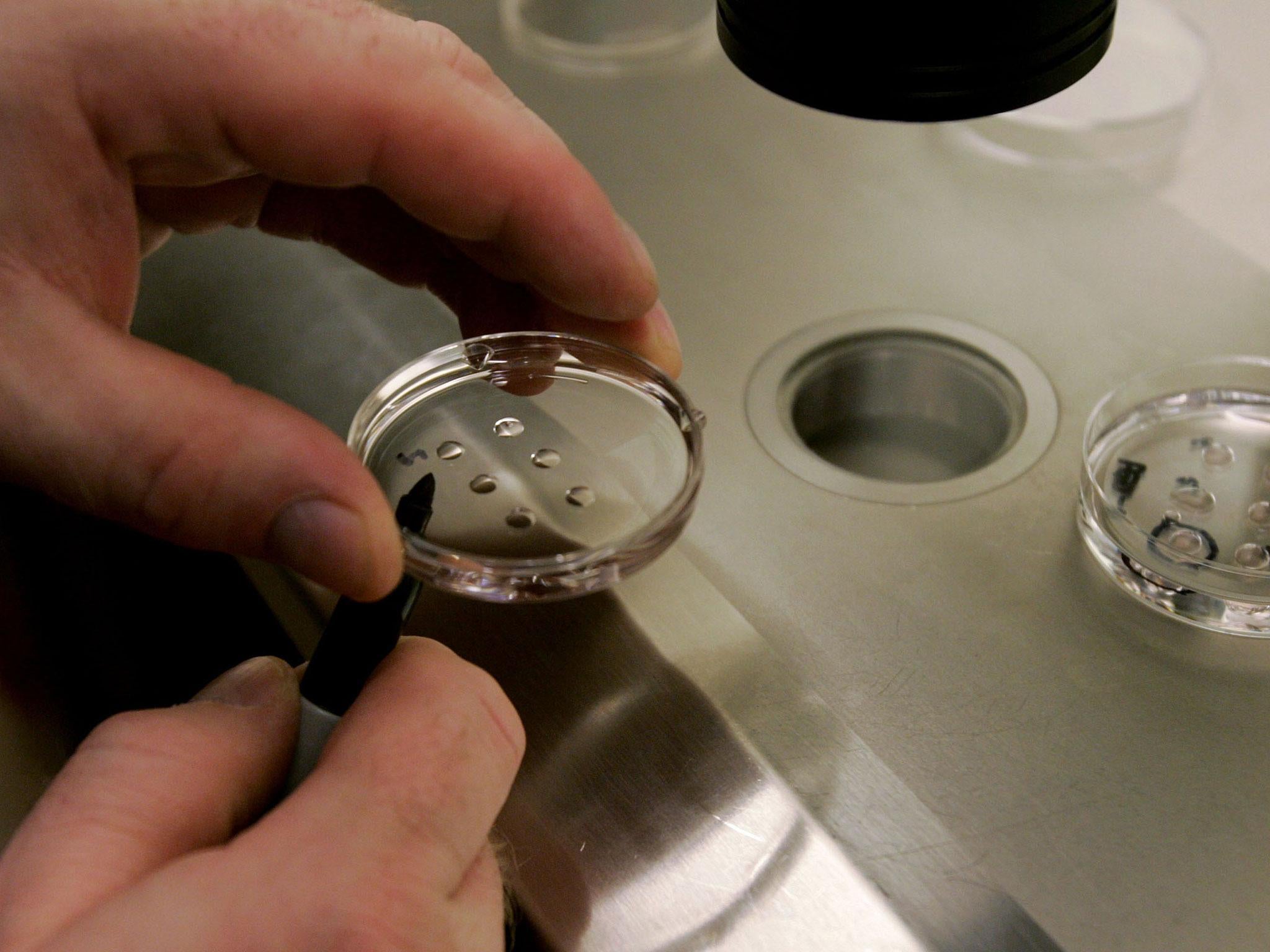Woman continues legal challenge to give birth to her own grandchild using her dead daughter's eggs
Mrs M, 60, wishes to take her daughter's frozen eggs to a US clinic and be impregnated with an embryo using donor sperm

Your support helps us to tell the story
From reproductive rights to climate change to Big Tech, The Independent is on the ground when the story is developing. Whether it's investigating the financials of Elon Musk's pro-Trump PAC or producing our latest documentary, 'The A Word', which shines a light on the American women fighting for reproductive rights, we know how important it is to parse out the facts from the messaging.
At such a critical moment in US history, we need reporters on the ground. Your donation allows us to keep sending journalists to speak to both sides of the story.
The Independent is trusted by Americans across the entire political spectrum. And unlike many other quality news outlets, we choose not to lock Americans out of our reporting and analysis with paywalls. We believe quality journalism should be available to everyone, paid for by those who can afford it.
Your support makes all the difference.A 60-year-old woman wanting to use her dead daughter’s frozen eggs to give birth to her own grandchild has urged judges to allow her to continue her legal battle to do so.
The woman, known only as Mrs M, lost a case that she and her husband, Mr M, 59, had brought before the High Court last June, following the death of their daughter from cancer in 2011.
Today, two Court of Appeal judges were asked to give the couple permission to challenge the decision.
Acknowledging that it was a “very sad case”, Lord Justice Treacy, sitting with Lord Justice Floyd, said they would take time to consider the arguments presented to them and give their decision at a later date.
Mrs M, who was 55 when the pair’s legal proceedings began, said she was “hopeful” that they would be given permission to appeal.
When the case was heard in the High Court, Mr Justice Ouseley was told how Mr and Mrs M’s daughter - who can only be referred to as ‘A’ for legal reasons - was desperate to have children and asked her mother to “carry my babies”.
After she died, her parents challenged a refusal by the Human Fertilisation and Embryology Authority (HFEA), to allow them to take the eggs of their “much-loved and only child” to an American fertility treatment clinic for fertilisation with donor sperm.
The independent regulator said the eggs could not be released from storage in London because A did not give her full written consent before she died aged 28.
Although the daughter had completed a form which gave her consent for the eggs to be stored for use after her death, she did not fill in a separate form indicating how she wished the eggs to be used.
The couple had hoped to create embryos using standard IVF treatment using their daughter’s eggs and sperm from an anonymous donor in the UK – but no clinic in this country was prepared to carry out the procedure.
Mr Justice Ouseley heard that A would have been “devastated” if she had known her eggs could not be used.
But the judge ruled that the HFEA had been entitled to find that she had not given “the required consent” and that there had been no breach of the family’s human rights.
He said: “I must dismiss this claim, though I do so conscious of the additional distress which this will bring to the claimants, whose aim has been to honour their daughter's dying wish for something of her to live on after her untimely death.”
If the case had been won, it is believed that Mrs M could have become the first woman in the world to become pregnant with her a later daughter's eggs.
Jenni Richards QC, who represented the parents, told the Court of Appeal judges that there was “clear evidence” of what A wanted to happen to her eggs after she died.
She said “all available evidence” showed A wanted her mother “to have her child after death” and that an appeal of the High Court’s decision “would have a realistic prospect of success”.
Additional reporting by the Press Association
Join our commenting forum
Join thought-provoking conversations, follow other Independent readers and see their replies
Comments